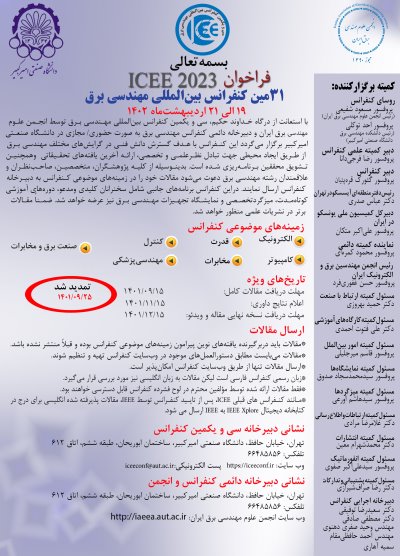0% Complete

نویسندگان :
کلمات کلیدی :
چکیده :
لیست مقالات بایگانی شده
Meysam Ghalyani - Maryam Karimi
Mehdi Mohammadi - Masoud Shafiee - Mahdi Mirshahi
Mohammad Hadi Rezaei - Ali Abooee
Amir Hossein Amiri Mehra - Mohsen Shafieirad - Zohreh Abbasi - Iman Zamani
Mohammad Ramezaninia - Mohammad Zoofaghari - Abolfazl Gheibollahi - Abbas Ali Heidari
Mahdi Alijani - Mohammadmahdi Javanmardi - Vahid Khodadadi - Adib Abrishamifar
متینه سادات حسینی قیداری - وحیدرضا یزدان پناه
Emad Jafari - Tahereh Binazadeh
محمد حسین امیدواری - حامد مهدوی نژاد - رزا صفایی اسدآبادی - محمدحسین شیخی
Mohammad Hashemnezhad - Hamed Delkhosh - Ahmad Shahabi - Mohsen Parsa Moghaddam





